- Details
- Hits: 3719
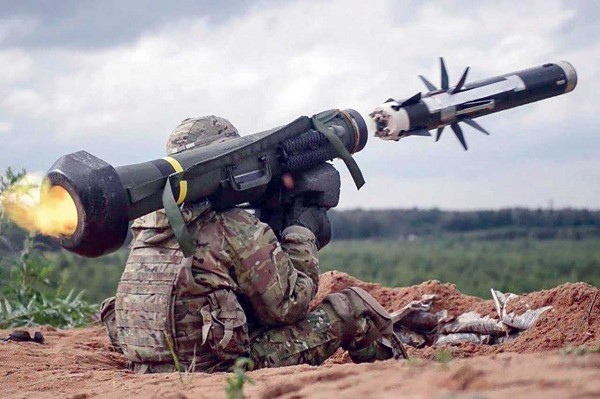
U.S. March 22, 2022 – The U.S. has just delivered 2,000 Javelin anti-tank missile systems to Ukraine.
Description - The Javelin Close Combat Missile System – Medium (CCMS-M) is a man-portable, medium-range tactical missile system that provides the U.S. Army and Marine Corps with precision direct-fire effects to defeat main battle tanks and other armored vehicles as well as personnel and equipment in fortifications or in the open. Javelin is highly effective against a variety of targets at extended ranges during day or night operations, and under battlefield obscurants, adverse weather and multiple countermeasure conditions.
Read more: WEAPONOLOGY: THE JAVELIN CLOSE COMBAT MISSILE SYSTEM
- Details
- Hits: 1142
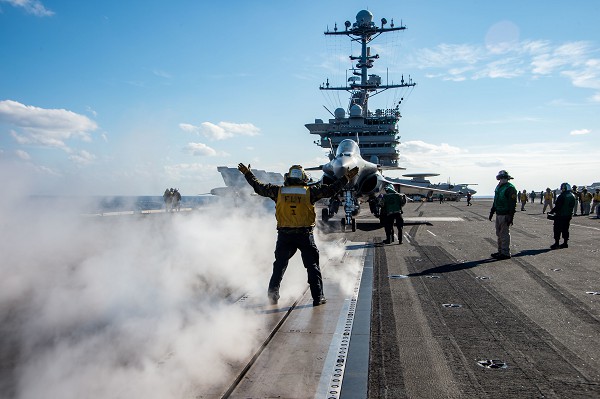
IONIAN SEA, March 11, 2022 - Aviation Boatswain's Mate (Handling) 2nd Class John Gandy, from Waco, Texas, directs the pilot of a French Rafale F-3R on the flight deck of the Nimitz-class aircraft carrier USS Harry S. Truman (CVN 75), Mar. 11, 2022. The Harry S. Truman Carrier Strike Group is on a scheduled deployment in the U.S. Sixth Fleet area of operations in support of U.S., allied and partner interests in Europe and Africa. Photo by Specialist 2nd Class Kelsey Trinh.
- Details
- Hits: 2086
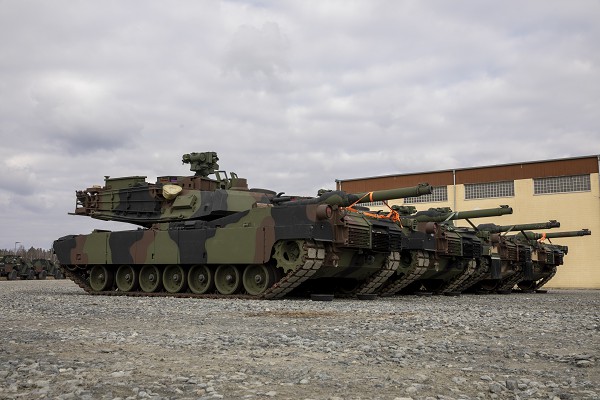
GRAFENWOEHR, GERMANY, March 10, 2022 - Army Prepositioned Stock-2 delivered to Grafenwoehr Training Area, Germany, March 6, 2022. At the direction of the Commander, U.S. European Command, U.S. Army Europe and Africa is drawing APS-2 from Coleman worksite in Mannheim, Germany in preparation to support 1st Armored Brigade Combat Team, 3rd Infantry Division arrival to Germany. Photo by Sgt. Caleb Minor.
- Details
- Hits: 1364
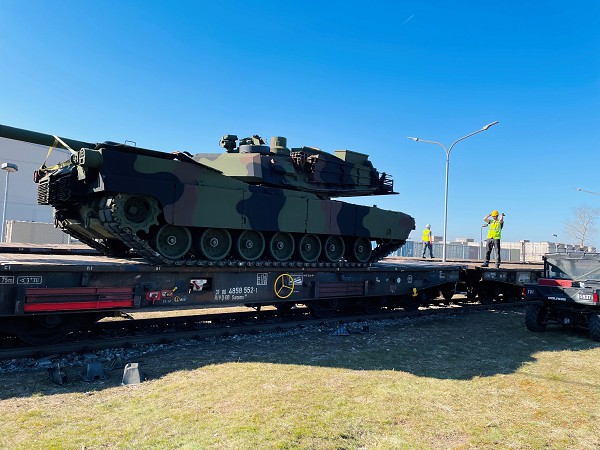
MANNHEIM, GERMANY, March 14, 2022 – An M1A2 Abrams main battle tank is loaded onto a German rail car at Coleman worksite in Mannheim, Germany. The 405th Army Field Support Brigade recently began augmenting its line-haul heavy equipment transporter deliveries of an entire armored brigade combat team’s worth of Army Prepositioned Stocks-2 equipment with rail. More than two dozen armored vehicles and equipment pieces – ranging from tanks to Paladin self-propelled howitzers to Bradley fighting vehicles and more – were shipped from Coleman to Grafenwoehr Training Area via Deutsche Bahn, or German railway, March 10. This was the first of many rail movements to come over the next few weeks. The APS-2 is being issued to the 1st Armored Brigade Combat Team, 3rd Infantry Division, deployed to Germany from the U.S. This combined U.S.-German mission shows great solidarity and mutual cooperation, and demonstrates a combined strong and unremitting commitment to NATO Allies and partners. Photo by Maj. Allan Laggui / Cameron Porter.
- Details
- Hits: 1285
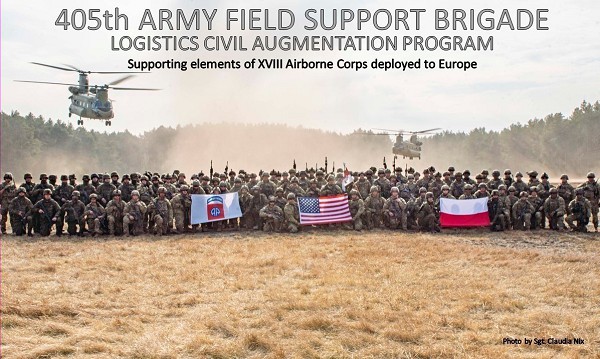
POLAND, March 12, 2022 - Paratroopers assigned to 3rd Brigade Combat Team, 82nd Airborne Division, and Polish soldiers pose for a group photo in Poland, March 3. Using its Logistics Civil Augmentation Program, the 405th Army Field Support Brigade has established life support operations for thousands of U.S.-based Soldiers deployed to Europe, including elements of the XVIII Airborne Corps in southeastern Poland. Photo by Sgt. Claudia Nix / Cameron Porter.
- Details
- Hits: 1714
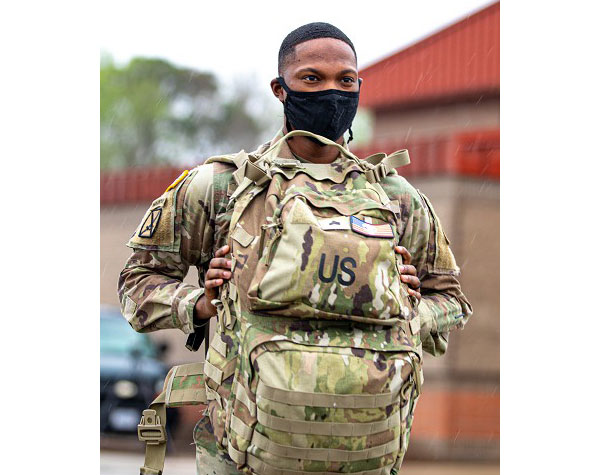
HUNTER ARMY AIRFIELD, GA, March 11, 2022 - U.S. Army Sgt. Shamarrius Madison, a wheeled vehicle mechanic assigned to the 87th Division Sustainment Support Battalion, 3rd Infantry Division Sustainment Brigade, boards a plane for deployment to the U.S. Army Europe and Africa area of operations, at Hunter Army Airfield, Georgia, March, 11, 2022. The Fort Stewart-based Soldiers will go to Europe to reassure NATO allies, deter Russian aggression and to be prepared to support a range of other requirements in the region. Photo by Pfc. Elsi Delgado.


